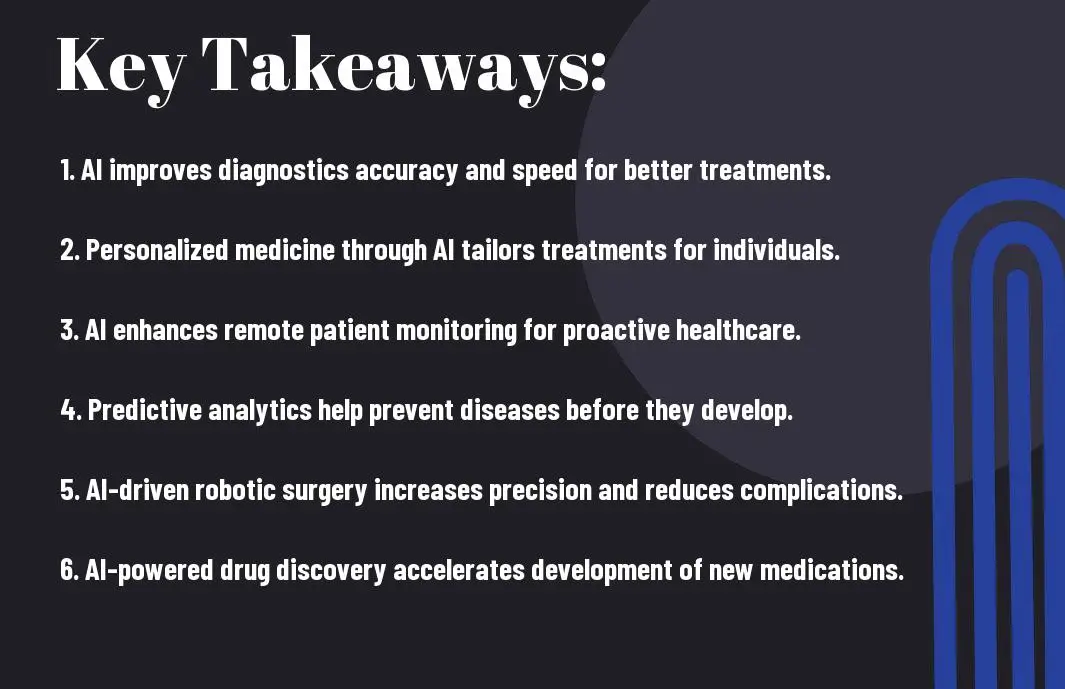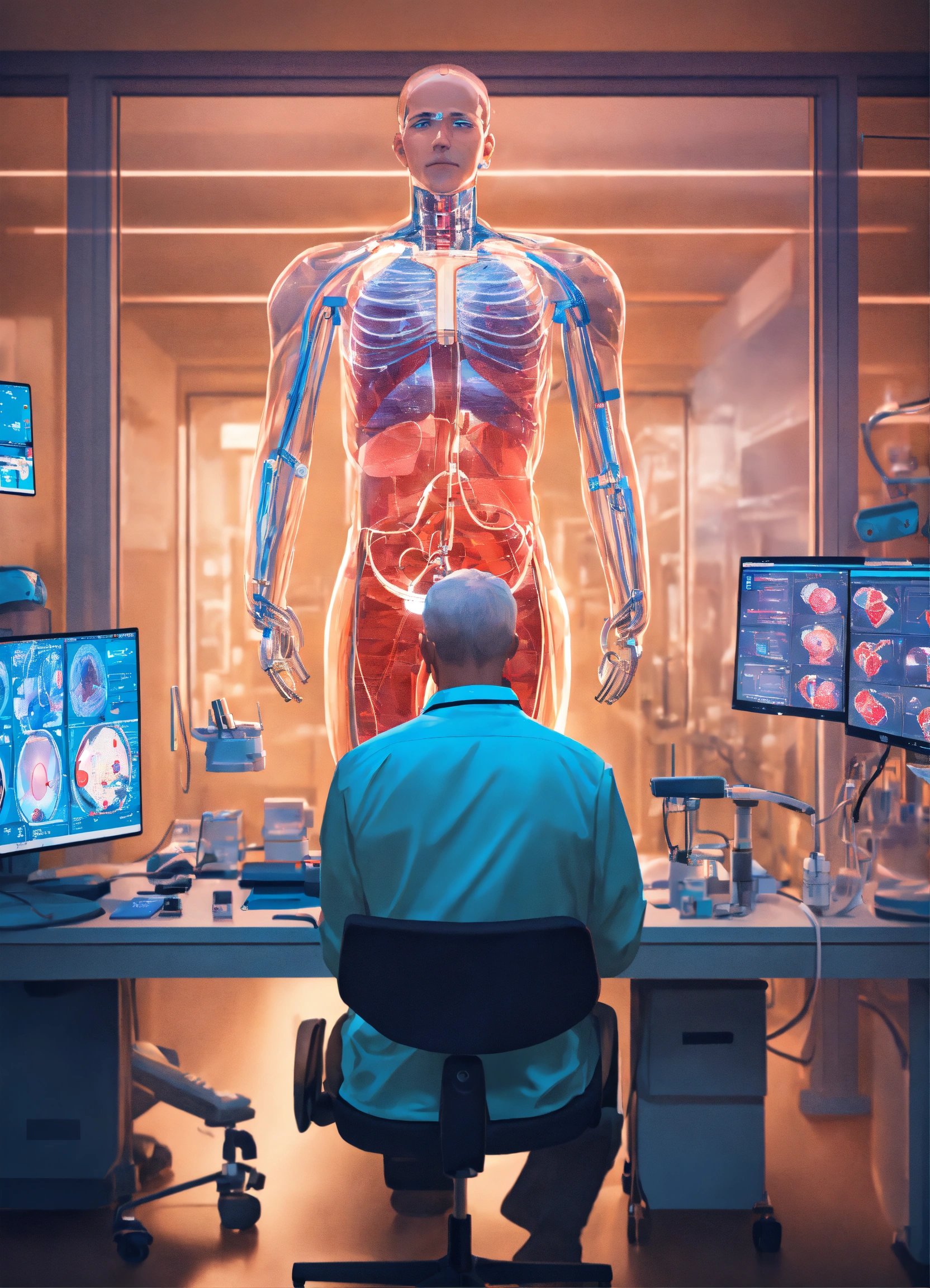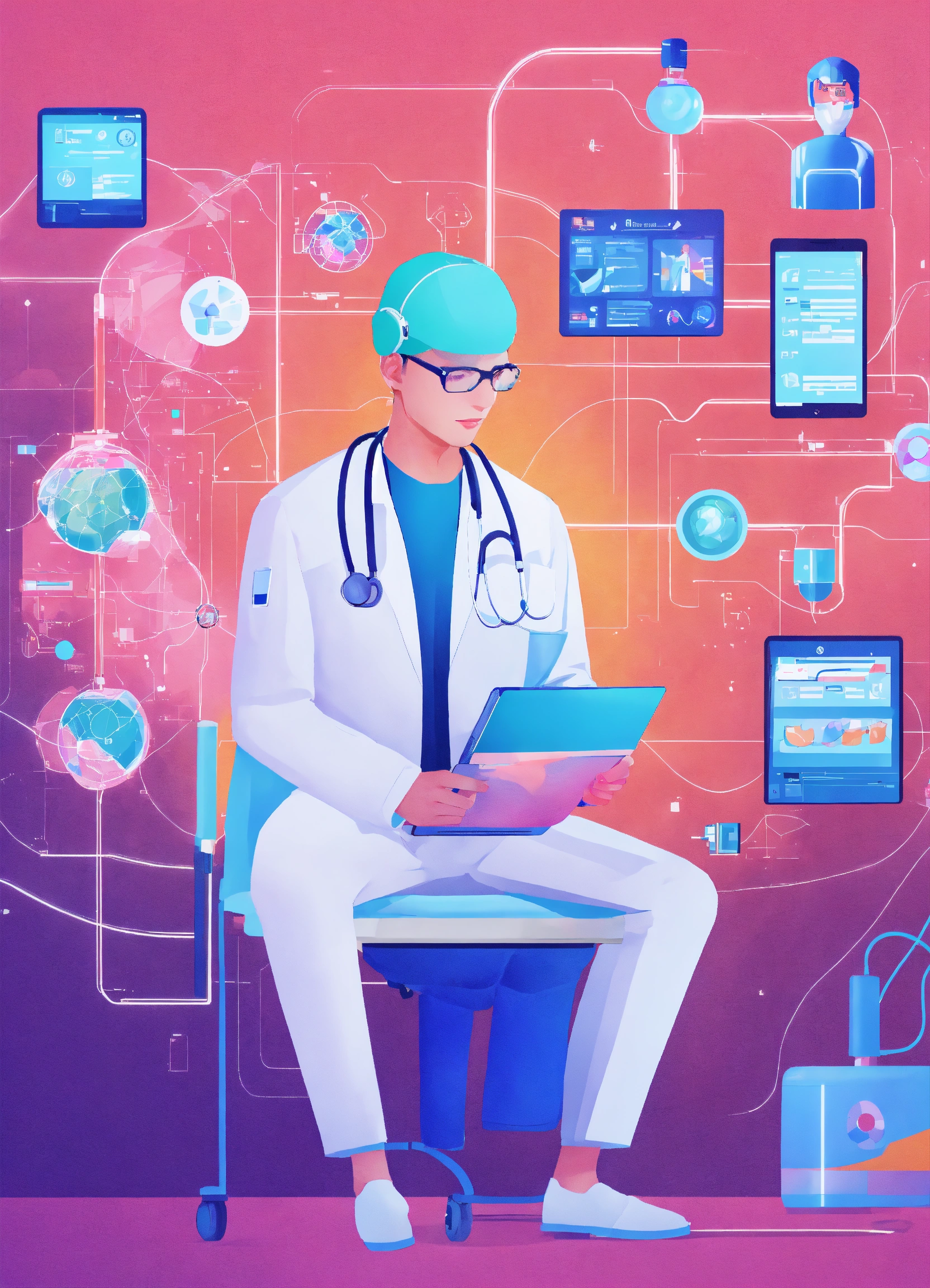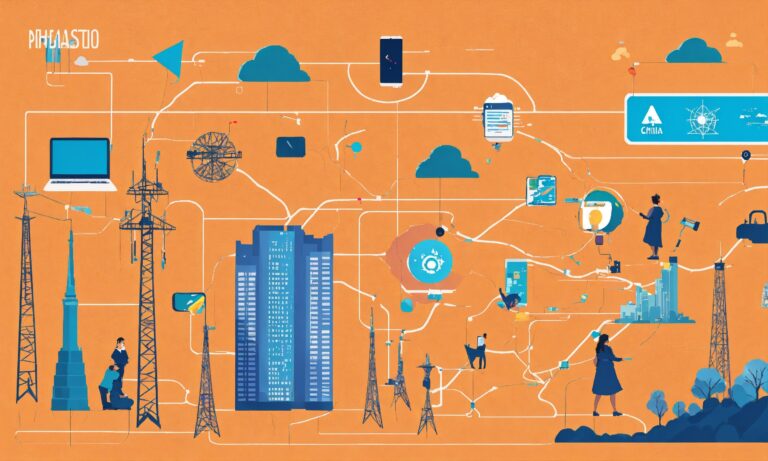You are about to launch on a journey into healthcare transformed by the wonders of Artificial Intelligence (AI). In this future-gazing article, we will explore into the groundbreaking ways AI is reshaping the healthcare landscape, from diagnosis accuracy improvements to personalized treatment plans and efficient patient care. Let’s explore the unprecedented potential of AI in revolutionizing healthcare as we know it, offering a tantalizing glimpse into the promising future where technology and medicine converge.
Key Takeaways:
- Improved Diagnostics: AI is enhancing diagnostic accuracy by analyzing vast amounts of medical data quickly and efficiently.
- Personalized Treatment: AI algorithms are enabling personalized treatment plans based on an individual’s unique genetic makeup and medical history.
- Enhanced Patient Care: AI is streamlining administrative tasks, reducing errors, and improving overall patient care and outcomes in the healthcare industry.
The Current State of Healthcare
Challenges in Healthcare Today
Challenges in healthcare today are multifaceted and complex. Rising costs, inefficient processes, and inconsistent quality of care are just a few of the issues plaguing the healthcare industry. The increasing prevalence of chronic diseases, an aging population, and the need for more personalized treatments further compound these challenges. Healthcare providers are struggling to keep up with the demands of a rapidly evolving healthcare landscape, leading to burnout and decreased patient satisfaction.
The Need for Innovation
Healthcare is at a crossroads, where innovation is no longer a luxury but a necessity. Advancements in technology such as Artificial Intelligence (AI) hold the key to transforming the way healthcare is delivered. AI has the potential to improve diagnostic accuracy, optimize treatment plans, and enhance patient outcomes. By harnessing the power of AI, healthcare providers can streamline processes, reduce errors, and ultimately improve overall quality of care.
The integration of AI into healthcare systems has the potential to revolutionize the industry, paving the way for a more efficient and effective healthcare delivery model. With AI-powered tools and technologies, healthcare providers can predict and prevent diseases, personalize treatments based on individual patient data, and enhance patient engagement. The need for innovation in healthcare has never been more critical, and AI is poised to drive significant advancements in the field.
The Rise of AI in Healthcare
Clearly, artificial intelligence (AI) is becoming increasingly prevalent in the healthcare industry, offering a wide array of benefits and opportunities for revolutionizing patient care. AI has the potential to transform healthcare delivery, from streamlining administrative processes to improving clinical outcomes and personalized treatments.
Defining Artificial Intelligence in Healthcare
An important aspect of AI in healthcare is its ability to interpret complex medical data and provide valuable insights to healthcare providers. AI systems can analyze large volumes of data with incredible speed and accuracy, enabling healthcare professionals to make more informed decisions and tailor treatments to individual patients. This capability holds tremendous promise for enhancing diagnostic accuracy, predicting patient outcomes, and optimizing treatment plans.
Early Adopters and Success Stories
Success stories of AI implementation in healthcare are emerging across various specialties and settings. Early adopters have reported significant improvements in efficiency, cost savings, and patient outcomes through the use of AI-powered technologies. For example, AI applications in medical imaging have shown remarkable accuracy in detecting abnormalities and assisting radiologists in making diagnoses. Additionally, AI-driven predictive analytics have been successful in identifying patients at risk of developing certain conditions, allowing for early intervention and preventive care.
Plus, AI has demonstrated its potential in revolutionizing patient care through virtual health assistants, personalized treatment recommendations, and remote monitoring solutions. The integration of AI into healthcare processes is poised to drive innovation, improve quality of care, and ultimately transform the way healthcare is delivered.
AI Applications in Healthcare
Diagnostics and Disease Detection
Diagnostics play a crucial role in healthcare, as early and accurate detection of diseases can significantly improve patient outcomes. AI is revolutionizing this aspect by analyzing medical images, such as X-rays, MRIs, and CT scans, with remarkable precision and speed. AI algorithms can identify patterns and abnormalities that may go unnoticed by human eyes, enabling healthcare professionals to make more informed decisions.
Personalized Medicine and Treatment Plans
One of the most exciting applications of AI in healthcare is the development of personalized medicine and treatment plans. By leveraging vast amounts of patient data, including genetic information, medical history, and lifestyle factors, AI can help tailor treatments to individual patients. This precision medicine approach not only enhances the effectiveness of treatments but also reduces the risk of adverse reactions.
Plus, AI can continuously analyze patient data to adjust treatment plans in real-time, based on how a patient is responding to therapy. This dynamic approach ensures that patients receive the most effective and personalized care throughout their treatment journey.
Streamlining Clinical Workflows
Streamlining clinical workflows is another area where AI is making a significant impact in healthcare. By automating routine administrative tasks, such as appointment scheduling, billing, and record-keeping, AI frees up healthcare professionals to focus more on patient care. This not only improves efficiency and reduces the likelihood of errors but also enhances the overall patient experience.
For instance, AI-powered chatbots can assist patients with scheduling appointments, accessing medical records, and receiving medication reminders. This not only saves time for both patients and healthcare providers but also helps ensure that patients are actively engaged in their own care.
AI-Powered Medical Imaging
Many advancements have been made in healthcare thanks to the integration of artificial intelligence (AI) technologies. One area where AI is making a significant impact is in medical imaging. AI-powered medical imaging is transforming the way doctors interpret and analyze medical images, leading to quicker and more accurate diagnoses.
Enhancing Image Analysis
Enhancing image analysis is one of the key benefits of AI-powered medical imaging. AI algorithms can quickly process large amounts of imaging data, allowing for more efficient interpretation of X-rays, MRIs, CT scans, and other medical images. This not only saves time for healthcare providers but also ensures that potential issues are not overlooked due to human error.
Improving Diagnostic Accuracy
One of the most exciting aspects of AI-powered medical imaging is its ability to improve diagnostic accuracy. By analyzing images with unprecedented precision and speed, AI systems can help detect subtle abnormalities that might be missed by even the most experienced radiologists. This leads to earlier detection of diseases such as cancer, which can significantly improve patient outcomes.
Accuracy in diagnosis is crucial in healthcare, and AI-powered medical imaging is proving to be a valuable tool in this regard. By assisting healthcare providers in making more accurate and timely diagnoses, AI is revolutionizing healthcare and paving the way for a future where diseases can be detected and treated more effectively.
AI-Assisted Robotics in Healthcare
Once again, artificial intelligence is pushing boundaries in healthcare through AI-assisted robotics. This innovative combination is paving the way for more precise, efficient, and effective medical procedures, ultimately transforming the way healthcare is delivered.
Surgical Robotics and Minimally Invasive Procedures
The integration of AI in surgical robotics has revolutionized the field by enabling surgeons to perform complex procedures with unparalleled precision and control. This technology has significantly reduced the margin of error, leading to quicker recovery times, less trauma for patients, and improved surgical outcomes. With AI algorithms analyzing data in real-time, robotic systems can assist surgeons in making split-second decisions, ultimately enhancing the overall surgical experience for both patients and medical professionals.
Rehabilitation and Prosthetics
Prosthetics have come a long way with the incorporation of AI, allowing for customized and intuitive devices that mimic natural limb movements with remarkable accuracy. AI-powered prosthetics can adapt to the user’s movements and provide a more natural and seamless integration into daily life. In rehabilitation, AI-driven robotics are transforming the way patients regain mobility and strength after injuries or surgeries. These robotic systems can provide personalized therapy regimens and real-time feedback to optimize the rehabilitation process.
With advancements in AI-assisted robotics, the future of healthcare is looking brighter than ever. These technologies hold the promise of improving patient outcomes, reducing medical errors, and enhancing overall quality of care. As the synergy between AI and robotics continues to evolve, we can expect to see even more groundbreaking developments that will shape the future of healthcare delivery.
The Future of Healthcare with AI
After exploring the current advancements in AI in healthcare, it is evident that the future holds even more revolutionary changes in the way healthcare is delivered and managed.
Predictive Analytics and Preventive Care
With the integration of AI technologies, healthcare providers will be able to utilize predictive analytics to identify patterns and trends in patient data, enabling them to intervene earlier and provide proactive care. This shift towards preventive care can lead to a significant reduction in the number of emergency room visits and hospitalizations, ultimately improving patient outcomes and reducing healthcare costs.
Virtual Assistants and Patient Engagement
One of the most exciting developments in healthcare is the integration of virtual assistants to enhance patient engagement. These AI-powered assistants can provide patients with personalized information, reminders for medication, and guidance on lifestyle changes. By empowering patients to take control of their health, virtual assistants can help improve adherence to treatment plans and overall well-being.
It is vital to recognize the potential of virtual assistants in improving patient outcomes and increasing healthcare accessibility. By offering round-the-clock support and personalized care recommendations, virtual assistants have the ability to revolutionize the way patients interact with the healthcare system.
Telemedicine and Remote Monitoring
Telemedicine, coupled with AI-enabled remote monitoring devices, has the potential to transform the way healthcare is delivered, especially in remote or underserved areas. Patients can receive real-time medical advice, consultations, and even diagnoses from healthcare providers without the need for in-person visits. This not only saves time and resources but also ensures timely interventions and continuous monitoring of chronic conditions.
Telemedicine is paving the way for more convenient and efficient healthcare delivery, breaking down geographical barriers and expanding access to quality medical services for all patients. The future of healthcare with AI holds the promise of a more proactive, patient-centered approach that prioritizes prevention, engagement, and remote care.

To wrap up
Presently, we are witnessing the transformative power of artificial intelligence in the healthcare sector. From personalized treatment plans to enhanced diagnostics and improved patient outcomes, AI is revolutionizing the way healthcare is delivered. As we look towards the future, the possibilities seem endless as technological advancements continue to evolve.
With AI at the forefront, healthcare is taking great strides towards more efficient, accurate, and patient-centered care. As we embrace these innovations, we are truly glimpsing into a future where AI will play a pivotal role in shaping the healthcare landscape, ultimately improving the well-being of individuals worldwide.
FAQ
Q: Why is AI important in revolutionizing healthcare?
A: AI technology has the potential to enhance diagnostic accuracy, personalize treatment plans, and streamline administrative tasks in healthcare, ultimately improving patient outcomes and operational efficiency.
Q: How can AI assist in early disease detection?
A: AI algorithms can analyze vast amounts of medical data to identify patterns and detect anomalies that may indicate the presence of diseases at an early stage, allowing for timely intervention and treatment.
Q: What are some challenges in integrating AI into healthcare practices?
A: Challenges include data privacy concerns, regulatory compliance, the need for specialized training for healthcare professionals, and ensuring the ethical use of AI in decision-making processes for patient care.





